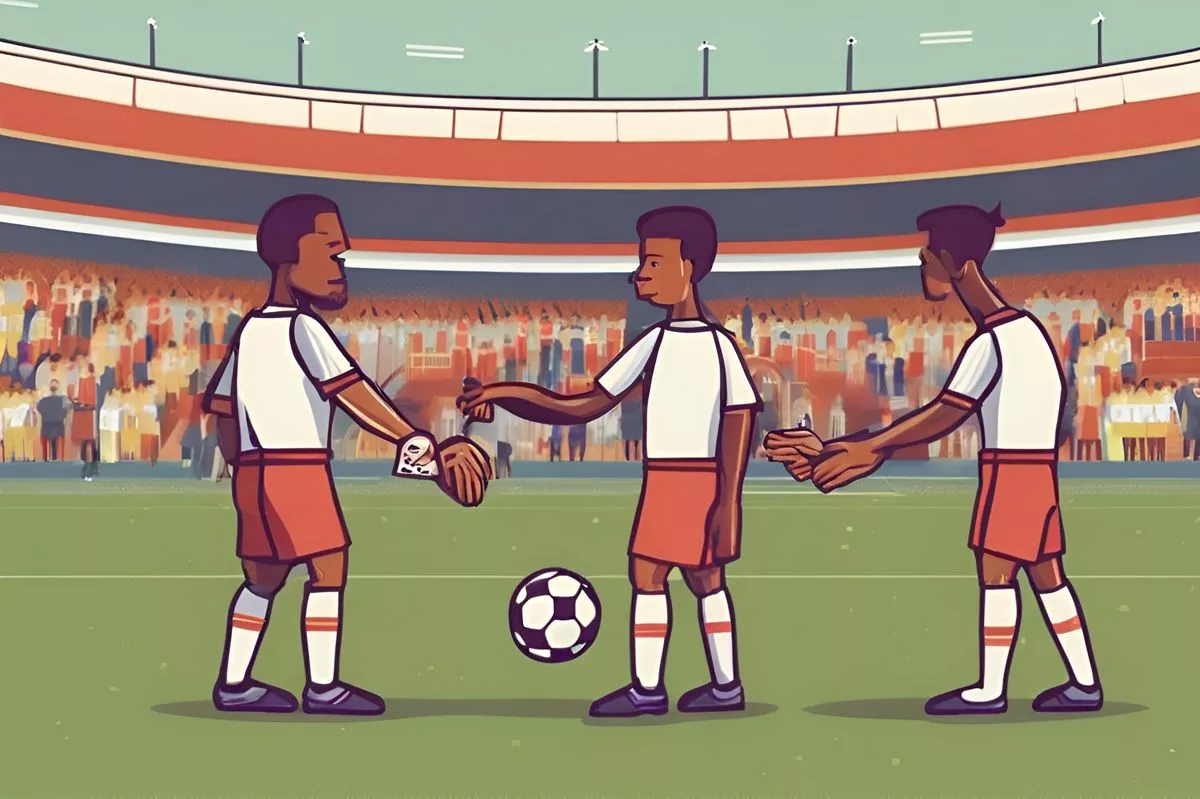Two prominent figures in South African soccer, Hugo Broos and Rhulani Mokwena, have reconciled after a feud that began with Broos’s comments about Mokwena exhibiting traits similar to Jose Mourinho. Mokwena’s level-headed response and commitment to direct resolution led to the reconciliation, emphasizing the importance of dialogue and understanding in conflict situations. The Sundowns are now set to begin their Ke Yona campaign with the spirit of sportsmanship and reconciliation that their coach demonstrated off the pitch.
A Surprising Reconciliation in the World of Football
In the world of South African soccer, a surprising truce has unfolded between two renowned figures, Hugo Broos and Rhulani Mokwena, after a feud was sparked by Broos’s remarks about Mokwena exhibiting traits similar to the elusive Mourinho. Mokwena’s level-headed approach, commitment to direct resolution, and forgiveness led to the reconciliation, which serves as a testament to the significance of dialogue and understanding in conflict situations.
A Surprising Reconciliation in the World of Football
In the pulsating center of South African soccer, a surprising truce has unfolded between two renowned figures, Hugo Broos, Bafana Bafana’s coach, and Rhulani Mokwena, Mamelodi Sundowns’ manager. This reconciliation concludes the drama that had been brewing behind the scenes, resonating with the infamous frictions between Jose Mourinho and his numerous opponents in the football world. This feud has now been relegated to a mere anecdote in their joint history, serving as a testament to the intense sparks that competitive football can ignite.
The Root of the Feud and the Path Towards Resolution
The friction found its source in Broos’s observation about Mokwena exhibiting traits similar to the elusive Mourinho. Broos criticized Mokwena for displaying a sense of misplaced superiority, akin to acting like a deity, a characteristic commonly associated with Mourinho. This allegation might have sparked a protracted argument, yet Mokwena, demonstrating the spirit of forgiveness, chose to take the moral high road.
Before the Nedbank Cup showdown, Mokwena articulated his friendly feelings towards Broos in a press briefing, thereby debunking any rumors of hostility. Mokwena identified himself as a forgiving person, denying any ill will towards Broos. He also confirmed that Broos felt remorse over the Mourinho incident and had sought forgiveness for his impulsive remarks.
Mokwena’s management of the situation deserves applause. His response to Broos’s public remarks demonstrated his level-headedness. Rather than taking the fight to the media, he opted for private conversations, reflecting his wisdom and self-control.
Mokwena’s Approach and Broos’s Apology
“I don’t engage with the media over such issues,” Mokwena explained, elucidating his decision to not broadcast the disagreement. He prefers to address conflicts directly, showcasing his integrity and commitment to resolving conflicts constructively.
Mokwena’s philosophy of direct resolution was apparent when he proactively called and voiced his discomfort about certain remarks to a colleague at TS Galaxy. He maintained that the specifics of those discussions were private, and their disclosure, if any, would be at the discretion of the other party involved.
Broos reciprocated by extending his apology to the Sundowns’ boss through Belgian media. The apology signaled the start of the resolution to their feud, which Mokwena opted to keep private, upholding the dignity and respect that professional football embodies.
“Coach Hugo Broos did apologize and explain his actions. After that phone conversation before Afcon, for me, it was over,” Mokwena emphasized.
The Aftermath and Moving Forward
Following this drama, the Sundowns are now set to commence their Ke Yona campaign against Daine Klate’s NB La Masia on Tuesday night. As they step onto the field, they will bring with them the spirit of sportsmanship, forgiveness, and reconciliation that their coach, Mokwena, demonstrated off the pitch. This incident, while high-strung, exposes the human dynamic of football, highlighting the significance of dialogue, understanding, and resolution in conflict situations.
What was the feud between Hugo Broos and Rhulani Mokwena about?
The feud began with Broos’s comments about Mokwena exhibiting traits similar to Jose Mourinho, criticizing him for displaying a sense of misplaced superiority.
How did Rhulani Mokwena respond to the feud?
Mokwena responded with level-headedness and commitment to direct resolution, opting for private conversations instead of taking the fight to the media.
How did Hugo Broos apologize for his remarks?
Broos extended his apology to the Sundowns’ boss through Belgian media.
What was the outcome of the feud?
Mokwena’s forgiveness and commitment to direct resolution led to the reconciliation between the two, emphasizing the importance of dialogue and understanding in conflict situations.
How did Mokwena’s approach impact the resolution of the feud?
Mokwena’s philosophy of direct resolution and commitment to resolving conflicts constructively played a significant role in resolving the feud.
What can we learn from this incident in the world of football?
This incident exposes the human dynamic of football, highlighting the significance of dialogue, understanding, and resolution in conflict situations. The spirit of sportsmanship, forgiveness, and reconciliation demonstrated by the Sundowns’ coach off the pitch can also serve as an example for the world of football.












